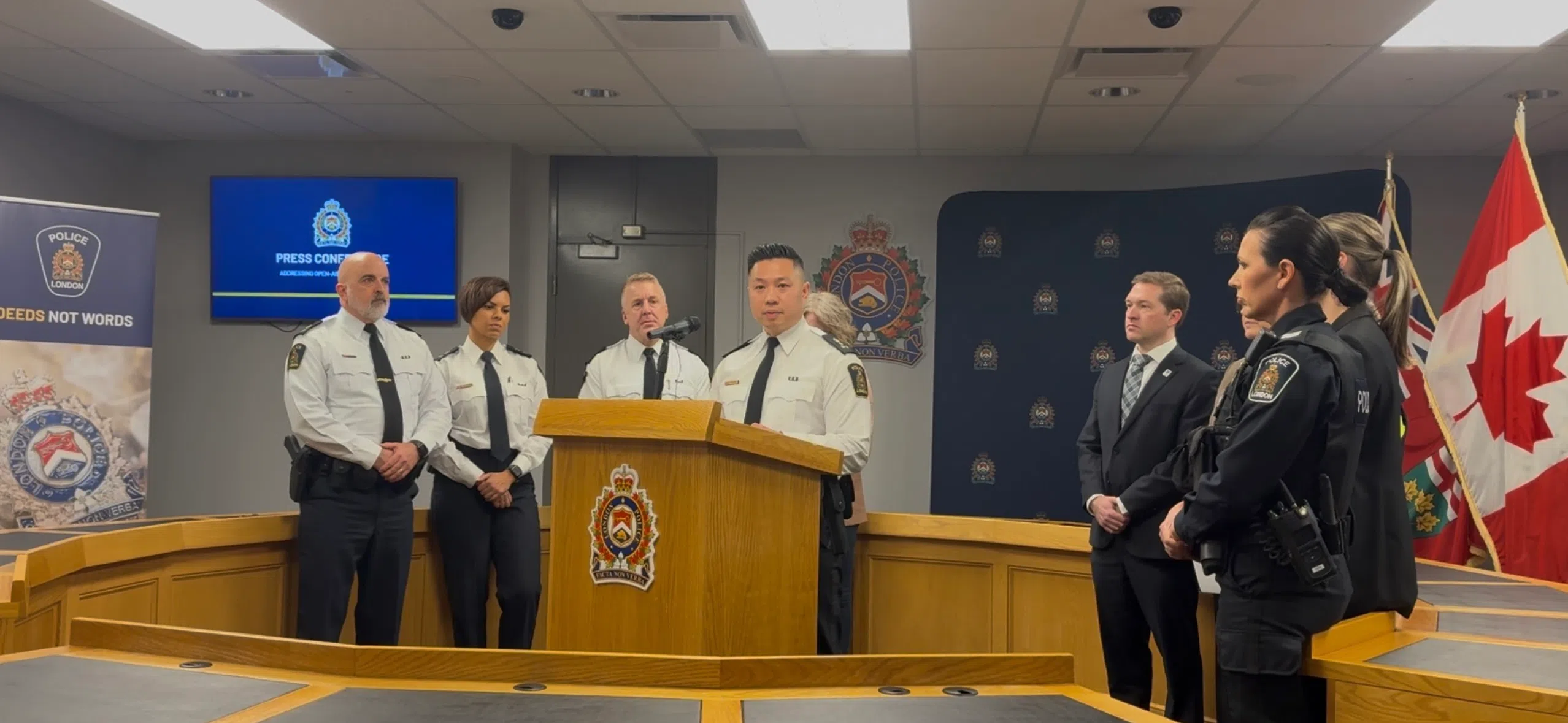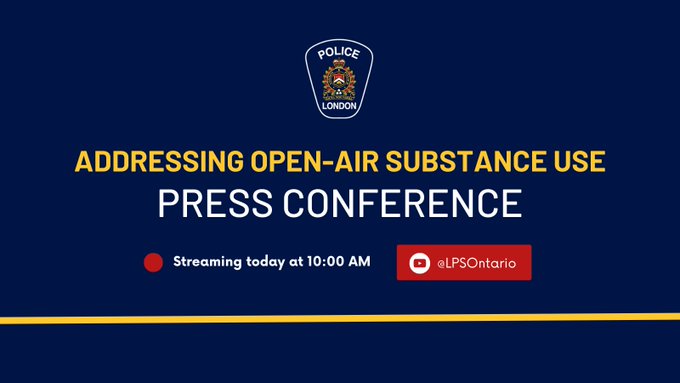
London Police Chief Thai Truong announces new strategy alongside Mayor Josh Morgan and other community partners. (Source: XFM NEWS/Ben Crossett)
The London Polices Service (LPS) have announced a pivot in how officers will address open-air drug use in London’s Downtown, Midtown, and Old East Village.
In a press conference held this morning at their headquarters on Dundas Street, LPS shared details on a bold new partnership with local community partners to better offer resources to those affected in the areas. Officers will step up interactions with those who are using substances but will focus on connecting them to resources. The initial phase is set to last 6 months.
“ For the past several years, there has been a deterioration of safety occurring in our downtown core, our Midtown and our Old East Village, our local businesses, residents. And citizens are negatively impacted by the proliferation of open air substance use occurring in public spaces,” said Chief Thai Truong
He added, “In most cases, people need help, and we want to ensure that those who need help receive the right support and referrals, and those who have a complete disregard for the safety of others are held to account.”
Starting tomorrow, LPS foot patrol teams will be paired with trained professionals from partner organizations including Canadian Mental Health Association (CMHA) Thames Valley and London Cares to provide a new avenue to substance abuse enforcement. The eventual hope is to eventually also have trained nurses through LHSC incorporated into the program. The goal is to reduce stress on both police and partner resources by guiding community members towards help, before it gets to the stage of future police interaction.
“This strategy reflects the kind of collaborative, community-based approach London needs: one that listens to residents, supports frontline teams, and prioritizes dignity and public safety in equal measure.” said Mayor Josh Morgan.
Morgan also touted the recent funding received from the Provincial government and the expansion of addiction recovery services like the H.A.R.T. hub, set to open within the next couple of months, as a connected part of the overall shift in strategy. The mayor said that at that this will always be an issue of healthcare, not one Community organizations involved also feel like its a switch towards a much needed new route.
“The current demand, however, outweighs our capacity to provide essential care to people struggling in our community. Through partnerships with community partners like the London Police Service, we can continue to expand our reach. Our staff will be working with the London Police Service Foot Patrol officers using their skills and experience to support individuals living with substance use concerns,” said Pamela Tobin, CEO of CMHA Thames Valley.
Partner organizations hope that these new efforts can combat the complex issue at a systemic level, leading to less strain on their services, with the added resources of the police. Training for officers to deal with these unique circumstances will be provided by the partner services by professionals in the field of mental health and addiction.

Source: (londonpolice.ca)
Additionally, increased enforcement measures are likely. When asked by reporters, Chief Truong initially dodged a question on more possible arrests and detention through increased police interaction. Eventually, he did admit that if there is a failure to comply with interactions, a decision to arrest may be taken but emphasized that an arrest does not mean charges. This does however does raise the question of increased arrests and specifically, the community feeling towards police if arrests are more frequent, which seems counterintuitive to the police’s message of compassion and engagement the police say they are bringing with this change of policy.
There are still some unanswered questions. When asked about funding for the new plan, Chief Truong said there wasn’t any official number for the total cost. The costs through studies and planning was estimated to be between 4-6 million dollars for one year. He claimed that the cost would be covered through the current operations budget, and could be upscaled in the future if results prove to be a success. It is unknown if funding or support for other services currently provided by LPS could be limited as resources are reallocated. The strategy does not provide any new funding or investment in additional personnel or police resources.
The new open-air drug strategy will be implemented on April 9th.

